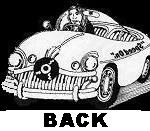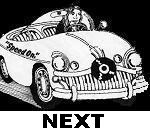Nicky Hopkins: Back-Door Man
By Andrew Kershaw
The Story of Pop, Part 51 1975
Rock rumour had it that the Kinks' 'Session Man', a track on their 1967 album, 'Face To Face', was written about Nicky Hopkins. On Jeff Beck's 'Truth' album this same pianist extraordinaire drew an uninhibited all-American round of applause from the audience for his manic solo in the middle of the live recording, 'Blues De Luxe'.
Apart from relatively few moments of public acclaim like these, plus a couple of solo albums that hardly set the charts on fire, and regular gigs with the Rolling Stones ever since the days of 'Their Satanic Majesties Request', the name of Nicky Hopkins was all too easily lost in the history of rock.
Generally speaking, the session man is an integral part of music recording, whether in the world of light opera or in rock. A session man is not really asked to do much more than turn out his tricks on demand and be able to repeat or vary them ad nauseam until the final version is fixed.
Global Commuter
Although that may be the rule for most session men, Nicky t lopkins was certainly an exception. His track record read like an A to Z of '60s and early '70s rock, includ-ing as it did work with Quicksilver Messenger Service, Jefferson Airplane, the Who, the Stones, the Kinks, John Lennon, Martha Reeves, Cheech and Chong and Joe Cocker � to name but a few. He was constantly in demand, and spent every year commuting between studios around the world from Japan to Jamaica. Yet this rather retiring musician, who had been playing in bands and studios ever since he joined Screaming Lord Sutch's Savages at the age of 16, remained an uiiknown to European audi-ences for a long time, despite a great deal of critical acclaim in the US since his touring days with the Jeff Beck Band in 1968.
Nicky had been playing piano since the age of 3. At 6 he began formal lessons, and between 11 and 16 studied at Lonclon's Royal Academy of Music. The 1426
British RaB explosion was just beginning to get off the ground at this time, and Nicky had not long been with the Savages when Cyril Davies cut out from Alexis Korner's band to form the famed RaB All-Stars, playing Chicago blues around the blossoming London club cir-cuit... with Nicky on piano.
Davies' Disc Debut
The new band packed out London's Marquee Club every week � and some-times twice a week � with another Korner offshoot, the Rolling Stones, play-ing the interval support spot. Early in 1963, Cyril Davies' first single, 'Country Line Special' b/w 'Chicago Calling', was released successfully, with Nicky playing both piano and electric piano.
After such a meteoric rise from virtually nowhere to the heart of the emergent British rock scene, events began to prove too much for Nicky. Between May 1963 and December 1964, he spent 19 months in hospital, suffering from exhaustion; and during that time Cyril Davies died.
When Nicky was ready to work again he turned to session work, and while on the studio circuit he met Glyn Johns, a producer who greatly admired his talent. Through Johns, Nicky spent a lot of time in various session work. One of his first assignments (exactly 10 years before his work on their 1975 album) was the Who's first album, 'My Generation'. Already the Hopkins style and versatility was coming to the fore. On the James Brown number, 'Please, Please, Please', Daltrey sings in a raw, Burdon-esque voice, with the mood on heavy soul, while in the background, occasionally rippling through, are the single-note runs and honky-tonk riffs of Hopkins' piano bringing the track to life. On 'The Ox', the famous instrumental extravaganza for which he received part-composer credit, Nicky's high, clear notes, alternately melodic and manic, slice through the aural deluge of Moon's drums and Townshend and Entwistle's guitars.
'My Generation' was produced by Shel Talmy, and it was on another of Talmy�s records that Nicky made his next major appearance: this time with the Kinks' 'Face To Face', the 1967 album that produced the hit single, 'Sunny Afternoon'.
This was followed in October 1967 by another appearance on a Kinks album, 'Kink Kontroversy', featuring that Ray Davies epic, 'Where Have All The Good Times Gone?'
By this time Hopkins had establishect himself among musicians and producer; as one of rock's leading session men. Despite this, however, he was still working on commercials and movie soundtracks. "I used to do weird things, like on the soundtrack for Joanna, a big American ego trip., They brought in 110 people to the studio, just to be flashy. On one session they had five keyboards: three harpsichords, a piano and an organ. I just didn't feel like playing so I sat underneath the harpsichord and read Melody Maker for the entire morning. I just wanted to see if anyone would twig it... and no one ever did!"
In mid-1967 Hopkins began his first studio work with the Stones on their album, 'Their Satanic Majesties Request'. Released in November and engineered by Glyn Johns, the album came in the wake of 'Between The Buttons' and 'Flowers', and did little to improve the standing of a group that was trying to get away from the hit single formula and into new areas of rock. In retrospect, however, many critics decided that this was an out-standing example of that music for which the American West Coast became famous in 1967. In many ways Hopkins set the tone of the album, from the first few lazy and whimsical piano notes of 'Sing This All Together' to 'She's A Rainbow', where his piano again provided an introduction, later becoming a lead to the rhythm and then fading to a distant echo to the vocals.
Shining Light
Since that first album, Nicky appeared on many Stones albums. Sometimes, as on 'Let It Bleed' where he only appears on four tracks � notably 'Gimme Shelter' � he shared the piano limelight with others, including Leon Russell, Al Kooper, roadie lan Stewart and Billy Preston. Always his sure touch shone through: a fine balance of playing strictly to order and playing so well that it stands out on the track.
Nicky had been fortunate in meeting Glyn Johns and working with plenty of good musicians since 1964, but after four years of non-stop session work he hadhad enough. He was keen to travel, and the most logical way which presented itself was by joining a band.
During much of 1968 he had been work-ing on the Jeff Beck Band's legendary album, 'Truth'. On 'Morning Dew', with Rod Stewart at his most soulful on a slow build-up to a mighty avalanche of Beck-led sound, Nicky's clear, rippling notes once again punctuated the maelstrom.
Following those sessions with Jeff Beck, Nicky became a full-time member of the group along with Rod Stewart, Ron Wood and Tony Newman. As well as producing another superlative album, 'Beck-Ola', in 1969, the band toured the US twice to rapturous reception, despite Jeff Beck's unpredictable behaviour rendering the schedule unstable to say the least. It was during these two tours that Hopkins earned himself a reputation and following that amply supported his own later album releases, British record companies being reluctant to release his albums on home ground.
West-Coast Flight
That first US tour was the first time Nicky had visited California, where he felt immediately at home. On the second tour Beck quit before reaching the West Coast. but Hopkins went ahead and spent a week adding his name and a great deal of his own sound to one of the milestone records of rock � Jefferson Airplane's 'Volunteers'. On the title track, his pounding, forceful piano introduction sets the fighting mood of lyrics that celebrate a never clearly-defined revolution. As the song goes on and Jorma Kaukonen's guitar becomes ever wilder, the piano rocks and rolls away in the background, filling in gaps and spurring the Airplane on to great heights.
After that excursion it was back to London to cut 'Beck-Ola', an album that contains one of Hopkins' very few solo numbers, the oddly prophetic and gentle 'Girl From Mill Valley'. The Beck Band didn't however long survive the release of 'Beck-Ola'. and Nicky went back to Califor-nia, this time to work on Steve Miller's album, 'Your Saving Grace'.
While in California, Nicky was asked to fill in for Gary Duncan in Quicksilver, one of San Francisco's original Flower Power bands that dated back to 1965. Before long he ended up by joining the band, recording three albums with them ('Shady Grove', 'Just For Love' and 'What About Me') and living in Mill Valley.
In LA during 1970 � when he wasn't off to Hawaii recording with Quicksilver � Hopkins managed to fit in a lot of session work, and also to fulfil a lifelong ambition by playing piano on a Fats Domino album. Fats had cut the vocals in New York but couldn't get out to California, so Nicky played the piano parts on the Randy Newman track, 'Hold On�, later released as a single.
Nicky Hopkins in his Jeff Beck days.
In June 1970, however, Nicky left Quicksilver and returned to London in time to complete work on the Stones' 'Sticky Fingers� album � the soulful, sorrowful piano parts to 'Sway'. Immediately after-wards, he went into a 'hermit phase' for a while: "I didn't want to know anything or anybody." In February 1971 he left his Mill Valley home to return to Britain for 10 months, spending four of them working on the Stones' 'Exile On Main Street' album.
Boudoir Stomp
Although supposedly still in a reclusive frame of mind, while in Britain he also worked on both John Lennon's 'Imagine' and the Who's 'Who's Next' albums. When 'Exile On Main Street' finally came out the Hopkins mark was clearly stamped on that album also. On 'Tumbling Dice', for example, his super-fast fingers keep up a ripple of nervous tension that breaks as the tempo changes, with heavy descending chords leading into a dense rhythm back-ing through which his metallic, honky-tonk riffs shine and sparkle.
The Stones' second 1972 album, �Jamming With Edward', with piano and cover design cartoon strip by Nicky Hopkins, also featured Mick Jagger, Ry Cooder, Bill Wyman and Charlie Watts. The album originated during spare studio time in the 'Let It Bleed' sessions two years previously, and was supposed to show the Stones 'at play'. loosely working through blues, with such one-off gems as 'The Boudoir Stomp'. Unfortunately the album was given unjustly dire reviews, and apart from credit given to Nicky's attempts to liven up the proceedings, the best thing said about it was that it showed up the improvizational limits of the Stones minus their two guitarists.
Despite 'Edward' however, Hopkins' work on 'Exile On Main Street' was followed by what he called "the most memorable musical tour since Joshua played the trumpet" � the Stones' tour of the US. Limousined and jetted around, written about and photographed at every turn; for seven-and-a-half weeks the Stones put on a splendid, celebrity-studded rock performance. Hopkins commented: "The actual playing at night made it all worth it, although I did some-times find myself on automatic, playing the same leads, the same runs, especially towards the end of the 50-show schedule." immediately after the tour, he was back in London to record his first solo album, 'The Tin Man Was A Dreamer'. The tracks were laid down in eight days. George Harrison then began recording his 'Living In The Material World' album, in the same studio. The result was that Hopkins worked on Harrison�s album from Monday to Fri-day each week, while Harrison and others worked on Hopkins' album at weekends. In between the studio work there was yet another Stones tour for Hopkins, this time the ill-fated Pacific tour of January and February 1973. 'The Tin Man Was A Dreamer' was 1 428 finally released in March 1973, and while the music received enthusiastic acclaim the critics slated Nicky's voice and the rather low profile he adopted in this, the first venture in which he really could have led from the front. Barely publicized and certainly no great financial hit, the album had the distinction of providing one track, 'The Dreamer'. for Andy Williams's 'Solitaire' album.
Hopkins learned a great many lessons from the experience of his first album. He was by now anxious to get his own band together; the problem lay in finding fellow-musicians with whom he could avoid the trap of sounding like just another session man in his own band, and thus escape the kind of criticism levelled at his album 1973, then, saw his session work slowing down. He worked on Ringo Starr's solo album, with the Stones on 'Goat's Head Soup' � notably in 'Angie' � with feliow LA resident Joe Cocker on his 'I Can Stand A Little Rain' album, and also on the soundtrack for Ken Russell's movie of 'Tommy. For much of 1974 he took it easy, looking around for musicians to play with and writing songs at home with his wife Dolly, whom he'd met in Hawaii.
The result of his search resulted in a second album in summer 1975: 'No More Changes'. With a back-up band of four 'unknown' British musicians � Eric Dillion, Rick Wills, David Tedstone and Michael Kennedy � Nicky had, it seemed, finally broken out of the session-man mould. Here was an album containing several strong songs � notably 'No Time', 'Refugee Blues', 'Last Night's Changes' and the title track � that show Hopkins producing his own distinctive material. Dreamy and wistful one moment, bar-room honky tonk the next and funky 12-bar in between � with a band that produced fine music together as a unit.
Despite a successful US tour following the album's release, and good US sales, Nicky Hopkins. solo musician, clearly still had some way to go. Nonetheless, as a session-man supremo, he would no doubt carry on for a long time yet, incomparably embellishing other people's work so long as good rock music
 -
-
 -
-

 -
-
 -
-

 -
-
 -
-
